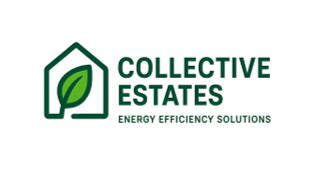🔧What SAP10 Means for Retrofit Projects — And How to Stay Compliant in 2025
If you’re a landlord, property manager, or housing professional in the UK, you’ve likely heard of SAP10 — the updated Standard Assessment Procedure that’s changing how homes are assessed for energy performance. But what does SAP10 mean for your retrofit projects, and how can you ensure your properties remain compliant and cost-efficient?
In this article, we’ll break down the SAP10 changes, why they matter, and how to future-proof your building with smart retrofit strategies.
What Is SAP10?
SAP10 is the latest version of the UK government’s method for calculating the energy efficiency of residential properties. It forms the basis for EPC ratings, which are increasingly important for:
Legal lettability
Accessing funding schemes like ECO4 or SHDF
Improving tenant comfort
Long-term energy savings
Unlike SAP2012, SAP10 better reflects the current energy grid, carbon factors, and real-world performance of technologies like heat pumps and renewables.
Key Changes in SAP10
🔌 1. Lower Carbon Factor for Electricity
SAP10 recognises that the UK grid is greener than before, giving electricity a lower carbon footprint. This encourages the use of:
Heat pumps
Electric panel heaters
Solar PV and batteries
🏠 2. Better Support for Modern Tech
SAP10 improves modelling for:
Mechanical ventilation with heat recovery (MVHR)
Smart heating controls
Thermal bridging and air permeability
🔥 3. Less Favourable for Gas
Gas heating is now less efficient and higher carbon under SAP10. This could lower EPC ratings for gas-reliant properties.
Why This Matters for Retrofit Projects
If you’re planning a retrofit or need to improve EPC ratings to meet legal requirements, SAP10 changes everything.
Old retrofit plans may no longer be effective
New compliance standards apply under PAS 2035
Grants and incentives are shifting toward electric and fabric-first measures
Ignoring SAP10 could mean:
Wasting money on outdated solutions
Failing to meet EPC targets
Missing out on funding opportunities
How to Retrofit the SAP10 Way
At [Your Company Name], we use SAP10-compliant energy assessments to guide every retrofit project. Here’s how we help:
✅ 1. Whole-Property Energy Modelling
We analyse your building using updated SAP10 data to identify the most impactful upgrades.
✅ 2. Low-Carbon Heating Upgrades
We install high-efficiency air source heat pumps, infrared panels, and smart controls tailored to SAP10 standards.
✅ 3. Fabric Improvements First
From loft insulation to airtightness upgrades, we prioritise measures that boost thermal performance — the most cost-effective way to lift EPC ratings.
✅ 4. Ventilation That Works
With tighter homes, ventilation is key. We fit MVHR and demand-controlled systems that meet SAP10 air quality and efficiency metrics.
✅ 5. Grant-Ready Retrofit Planning
We prepare properties for ECO4, SHDF, and LA Flex funding, ensuring eligibility based on current SAP10 ratings.
Who Should Act Now?
Landlords with properties below EPC C
Housing associations aiming to decarbonise housing stock
Property managers responsible for block improvements
Retrofit coordinators and PAS 2035 advisors
Book a SAP10 Retrofit Assessment Today
Don’t let outdated assessments cost you money. We offer affordable SAP10 retrofit assessments and end-to-end improvement plans for landlords and housing professionals across London and the South East.
📞 Call 0203 137 2566
📧 Email info@collectiveestates.co.uk
📍 Serving Greater London, Essex, Kent, and surrounding areas
Get Ready for the Future — Retrofit with SAP10 in Mind
Keywords targeted:
SAP10 retrofit
EPC upgrade services
low-carbon retrofit UK
SAP10-compliant energy assessment
PAS 2035 retrofit plan
retrofit for landlords UK
ECO4 and SHDF grants
If you’d like to discuss this further with us, we can help and guide you through the whole process then please provide us with a few details below, and we we’ll get in touch with you very soon.
